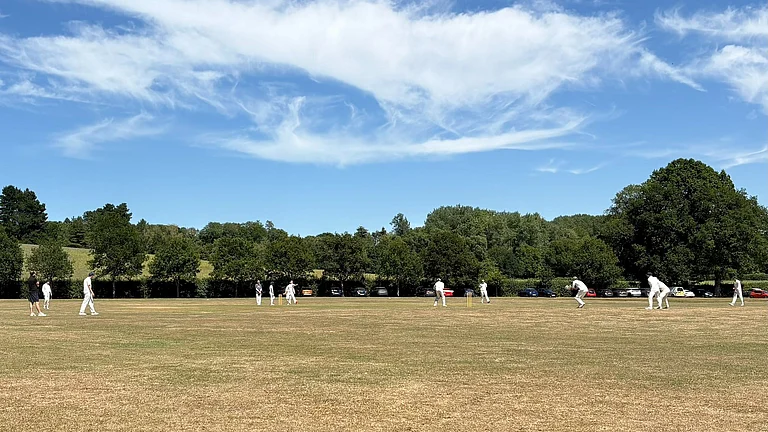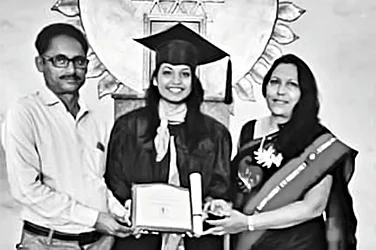William Wei has never been to China. The closest he ever got was on a trip he once made to his aunt's house in Hong Kong. He even went to the point from where the Chinese mainland is only a one-and-a-half hour journey. But he felt like a stranger there. "Initially I was excited but I found the link missing. Except for people of my face and physique, I didn't find anything homely. I felt as much of a stranger as you would. I think we're now as Bihari as you."
The 'republic of Bihar' does have a China connection, and the reference is not to the sundry Maoist groups operating in the state. The link is provided by Chinese families like that of Wei, a third-generation Chinese dentist in Patna. Hailing mostly from the Hakka community, these families had migrated out of China decades ago to escape the hardships of a harsh Communist rule and the frequent floods which ravaged their native Hubeh province.
There's an epic touch to this little sidestream of history. Travelling on foot, these migrant families first hit Thailand, then entered Myanmar (then Burma) and from there reached Calcutta. Most of them settled down in the big city and took either to shoemaking or became restaurateurs.
But some like Wei's forefathers didn't drop anchor even at Calcutta. They went down south after which they moved up east again. They finally pitched tent in Patna. Wei's grandfather, Wei Moshin, in fact, is supposed to be the first Chinese to touch base in Patna - that was sometime in the '30s. He was soon followed by two or three more families. A natural vocation awaited them - their inherited art of tooth-fixing.
Soon they became known for their dentistry skills in all of Bihar. Wei's grandfather opened his dental clinic at Ashok Rajpath on the banks of the Ganga. Points out Wei's mother, "At that time water was the major means of transportation. Mahendru Ghat,
a shipment station, was a profitable place from a business point of view." Wei's uncle, M.Y. Chiang, began practising close by.
The renown the traditional Chinese dentists earned facilitated their gradual assimilation into mainstream society. So much so that Wei - born and bred in Patna - can say: "We know as little about China as any other citizen of Patna." Wei and others like him come across as thoroughbred Biharis in their dress, food, lifestyle and responses to the world around. They speak the local languages perfectly. Wei even admits to being a Manoj Bajpai fan. It's only when they celebrate the traditional Chinese New Year in January-February that anything setting them apart comes to view.
For all that, Chinese dentistry has been facing a professional threat from modern, specialised dentistry in the state over the past one decade. Their traditional methods, for which people used to queue up, is now alleged to be mere quackery. The erosion of favour is clear - compared to 12 Chinese dentist families in the '60s, now only six such families practice in Patna.
A reliance on traditional skills, rather than formal training, is what has led to the rather unkind label of quackery. Take Yang Mei Chang, 38 and wife of dentist Yang Tsai Te. She treats tooth ailments in her husband's absence, though she holds no degree and has picked up the art by watching her man at work. She is not amenable to the idea of her children inheriting the vocation. Says she: "They lack interest and the prospects too are dipping." Chang Khai Chow, 50, who holds a degree from a Mangalore dental college, agrees.
Clad in jeans and a snazzy shirt, Wei appears more confident than the elder practitioners. Stoutly denying allegations of quackery, he says there's no difference in their approach and that of dentists with a formal degree - indeed, he even claims superiority. Wei should know since apart from his inherited skills, he also has a dentist's degree from A.B. Shetty Dental College, Mangalore. Avers he: "Ours, in fact, is a more perfect method as most of us now combine our traditional knowhow with the modern science that we learn in dental college." Students who come from traditional dentist families have a distinct edge over their classmates. Wei, for one, knew all the basics of his course when he enrolled in dental college. All he needed to learn, before joining his father Wei Min Chang's practice in '96, were the theoretical aspects.
Others like K.Q. Chang continue their trade more out of helplessness than anything else. Laments Chang: "We don't know anything other than this art, so in a sense it's our compulsion." But what really hurts this dwindling species of tooth wizards is that people who once held them in great regard now prefer to stay away.


























